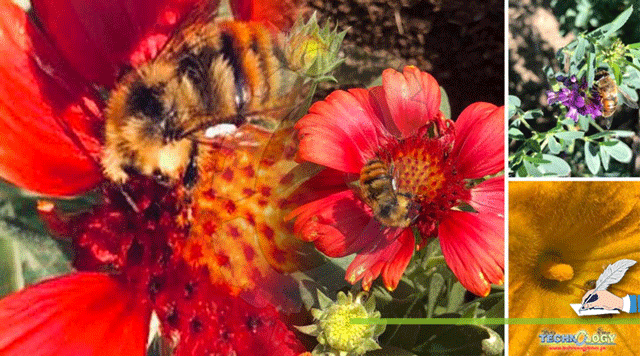Bees worldwide are showing a sharp decline due to a number of anthropogenic factors. Bees are important natural pollinators and essential for the survival of global agriculture, forestry and apiculture industries. Both anthropogenic and natural factors are responsible for the decline of global pollinators particularly honeybees abs native bees.

By Saikat Kumar Basu
Among these are chemical pollution in industrial agriculture, change in land use patterns, poor immunity and genetics of existing bee colonies and hives due to lack of suitable vegetation and flora for them to collect adequate nectaries and pollens, increase in parasitic diseases of bees, Colony Collapse Disorder (CCD) to mention only a handful. But the impacts have been quite devastating with some species of bees being almost pushed towards extinction.
It important to reduce the excessive use of toxic synthetic chemical pesticides that are killing pollinators like bees, moths, butterflies, beetles, flies, wasps, hornets, ants in massive number. It is important to protect them through proper eco-friendly applications by establishing suitable Best Management Practices for a sustainable planet. Other insect pollinators in addition to other animals like bats, birds, snails and slugs are all being impacted by this chemical pollution.
Establishing Pollinator Garden or Pollinator Sanctuary could be an important step towards conservation of local pollinators and enriching local biodiversity. By growing mixture of different annual, biennial and perennial crop species, wild flowers, commercial ornamentals growing across various seasons could provide food sources for pollinator insects, molluscs, small passerine birds to thrive and increase their population towards stability. Such Pollinator Sanctuaries could be established in areas of agronomically non-productive lands, along farm perimeters, adjacent or encircling natural or artificial waterbodies, shelter belts, city and corporate parks and gardens, along railway tracks, in any open and unused spaces in urban and rural areas, forest fringes, along perimeters of fruit orchards, city boulevards, kitchen gardens, lawns and other suitable locations. This is a cheap, eco-friendly alternative that helps towards sustainability and building the crashed population of local pollinators.
However, it is important to note that this rapid decline of natural pollinators like bees could not be simply controlled just by the use of stringent law and legislature. There is serious need for mass education and awareness across the globe to sensitize people about the possible dangers of loss of pollinator’s to both our economy and ecology. Hence it is important for us to create a comprehensive global platform dedicated towards the conservation of pollinators for a better nature and to secure our future.
Global decline of natural pollinators like bees is a serious threat to our global agriculture, apiculture and forest industries in which several millions of people are employed across the planet. Saving pollinators like bees is like saving the humanity. Ecology and economy must go hand in hand for establishing a sustainable planet for our future generations.